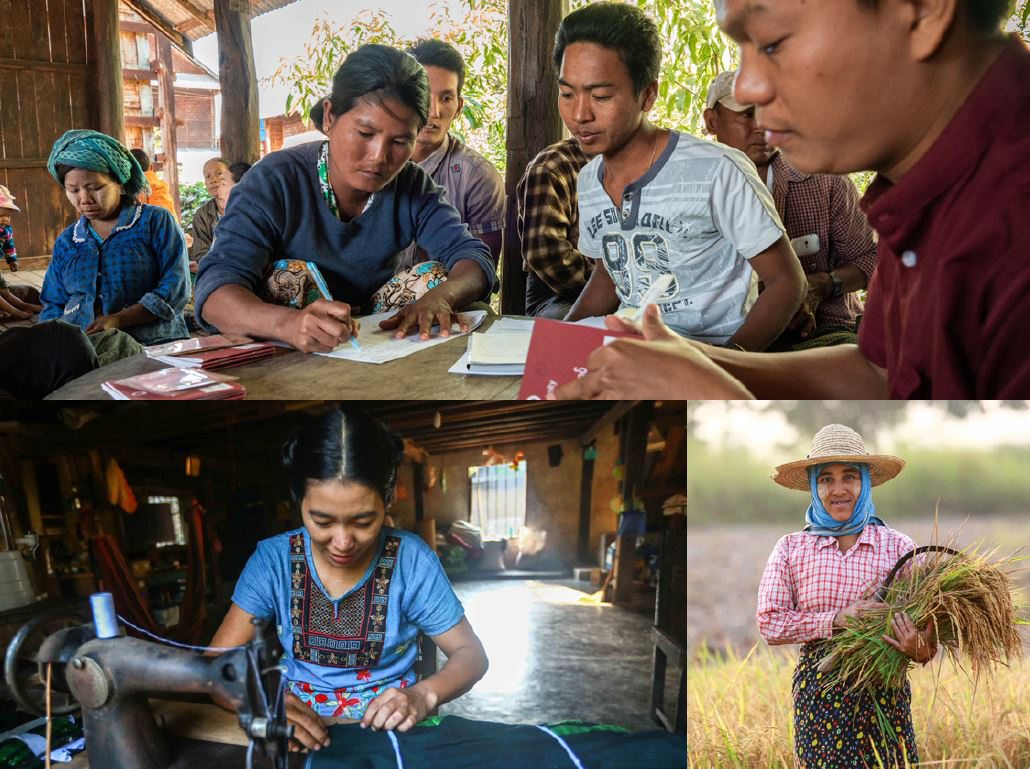
Yangon, Myanmar, December 15, 2020–Microfinance institutions (MFIs) in Myanmar can play an important role in helping women deal with the impacts of COVID-19 by providing improved access to finance, according to a new report by the International Finance Corporation (IFC).
The report, Gender and Microfinance in Myanmar, points to opportunities for MFIs to better tailor products and services to meet the needs of women borrowers who make up about 60 percent of microfinance borrowers in the country, as well as highlighting the benefits to MFIs of promoting women within their own ranks.
"The impacts of COVID-19 have illustrated the need to maintain access to finance so businesses can continue to operate and put money in people's pockets," said Jane Yuan Xu, IFC Country Manager for Myanmar and Thailand. "This report clearly illustrates the business case for targeted products for women, especially women-led businesses, because if they're unable to borrow the funds they need, they will borrow from informal lenders at much higher and dangerous interest rates. It's vitally important for the industry to promote responsible lending practices and protect borrowers, especially women, from over indebtedness due to financial constraints brought about by COVID".
The report highlights that while many MFIs have started their digital transformation paths, the COVID-19 pandemic has accelerated the need to become even more digital. It also calls on the microfinance industry to promote more women in leadership positions. While women comprise 60 percent of MFI employees in Myanmar, they make up only 34 percent of senior managers.
"Women have always been essential to the success of the microfinance industry in Myanmar, making up the majority of our customers, as well as most of the agents who represent us on the ground," said Jana Chmelnizki Kadian, CEO of Advans MFI Myanmar. "IFC's research clearly shows that the microfinance industry can do much more to support women in Myanmar, both as employees and as clients. Women will be an essential part of Myanmar's economic recovery from COVID-19, and the microfinance industry will have a critical role to play in enabling this."
According to the report making the microfinance sector more gender inclusive has the potential to deliver multiple benefits: improving the safety and comfort of both women and men employees at work; establishing an equal opportunity culture which encourages more women to become part of leadership; and helping to attract and retain talent.
It says making the sector more gender inclusive also have the potential to help ensure that products and services offered by MFIs are more responsive to the needs of their predominantly female customer base, improving the company's ability to attract more clients and consequently improving productivity in Myanmar, encouraging investors, and contributing to business growth.
A recent survey conducted by the World Bank showed that women are disproportionately impacted by COVID-19, further exacerbating the wide gender inequities in Myanmar. Women-owned enterprises are more affected than those owned by men, as women have less access to formal and informal support and take on a greater share of non-paid care and domestic responsibilities.
The Gender and Microfinance in Myanmar report is part of IFC's efforts to address barriers to women's economic participation in Myanmar and builds upon the previous Respectful Workplace and Tackling Childcare studies. The report was produced in partnership with the World Bank Group's Umbrella Facility for Gender Equality (UFGE), a multi-donor trust fund administered by the World Bank to advance gender equality and women's empowerment.
About IFC
IFC—a member of the World Bank Group—is the largest global development institution focused on the private sector in emerging markets. We work in more than 100 countries, using our capital, expertise, and influence to create markets and opportunities in developing countries. In fiscal year 2020, we invested $22 billion in private companies and financial institutions in developing countries, leveraging the power of the private sector to end extreme poverty and boost shared prosperity. For more information, visit www.ifc.org/.
Stay Connected
www.ifc.org/eastasia
www.twitter.com/IFC_EAP
www.youtube.com/IFCvideocasts
www.ifc.org/SocialMediaIndex
www.instagram.com/ifc_org
www.facebook.com/IFCeap
www.facebook.com/IFCwb
Contacts
In Yangon:
Kaye Lin
Phone: +95 99 6729 8612
E-mail: Klin1@ifc.org
In Washington, DC:
Kitchie Hermoso
WhatsApp: 1-202-471-0995
E-mail: mhermoso@ifc.org
Stay Informed
Sign up to have customizable news & updates sent to you.